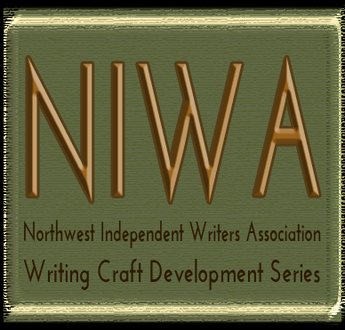 November 1st began the merry month of madness many authors know as NaNoWriMo. Once again, as I have for the last seven years, I spent those thirty days on an intensive writing binge. Thank the hundred little gods of writing, it’s over! This year, I made good progress on the rough draft of my current work-in-progress, which surprised me. I had intended to put that (still unfinished) epic fantasy novel aside and concentrate on building a backlog of short stories, poems, and flash fictions, all of which were to be written to a variety of different themes. The reason I must build a backlog with a wide variety of themes is this: most anthologies and many publications will call for submissions based around a central idea–such as carnival, redemption, bridges, asylum–large concepts that unify the disparate stories. Times have changed and so has the publishing industry. Despite the changes, writing short stories is still the way to get your foot in the door and not only gain visibility, but you can gain respectability. Magazines that are SFWA affiliated are springing up all over the internet, and they are accepting submissions. Submitting to contests is good too. If you have a story that was a contest winner, you may be able to sell it to the right publication. Through the process, you will grow as a writer. So, my plan was to write to as many different themes as I could think of. I wasn’t as successful at that as I intended, but I did manage a few short stories. Hopefully, if an opportunity presents itself later, I will have the perfect story ready, one that will only need some revising and editing. One question I hear often when I am giving seminars is “How do I identify the theme of my story?” Theme is what the story is about on a deeper level than what is seen on the surface. It’s the big meaning, a thread that is woven through the entire story, and often it’s a moral. Love, honor, family, redemption, and revenge are all common, underlying themes. Sometimes it’s difficult to write a short story unless you start out with a theme in mind. The same can be said for novels, although the theme can emerge more slowly than in short stories. For me, writing to a theme makes the process easier because half the work is done—I know what I’m writing about. When I made my list of proposed stories, I searched Submittable for open calls, so I would know the trending themes in advance. Some publications have submission dates that are several months out, some have short deadlines. Several of the stories I worked on during November are for themed anthologies with open calls for submission, but whose closing dates are rapidly approaching. Many contests and publications use the Submittable platform to accept and review the large volume of manuscripts they received from writers. When a publisher uses this platform, it’s great for us as authors because we can use the app to keep track of what we have submitted, and where it currently is in the process. On your personal page, Submittable lists four stages in the process:
It is the responsibility of the contest manager or publication to notify Submittable as to the status of their entries and submissions, and while most do, some contests managers aren’t as diligent about that. I assume that if it has been more than year and the manuscript is still in review, they didn't want that piece. Knowing the trending themes publishers are asking for is crucial to building your backlog with salable stories, so if you don’t have a Submittable account, you should get one. What I hope to do in each story I begin writing is to identify what the theme the publisher wants stories written to means to me. My story will be up against many entries, so I need to make mine as unique as is possible. Analyze the theme and try to think creatively—think a little wide of the obvious tropes. Look for an original angle that will play well to that theme and then go for it. To support the theme, you must layer
As an author, most of my novels have been epic fantasy, based around the hero’s journey and detailing how the events my protagonists experience shapes their reactions and personal growth. The hero’s journey allows me to employ the theme of good vs. evil and the sub-themes of brotherhood, and love of family. These concepts are important to me on a personal level, and so they find their way into my writing. I like submitting my work to places that use Submittable, because when you can see where your work is in that process, you can better decide what to do with each manuscript. After all they have room for only so many pieces. This means that sometimes your good work is rejected in favor of another author’s good work. Sulking over a rejection doesn't advance your career, so promptly put that manuscript back into circulation. What themes are important to you? When you look for a book, what catches your interest? I am not talking genre here, I am speaking of the deeper story. When you look at it from a distance, what do all the stories you love best have in common? This is what your theme is, and what you must write to. _______________________________________________________ Connie J. Jasperson is an author and blogger and can be found blogging regularly at Life in the Realm of Fantasy.
1 Comment
Indie authors look for clues to gauge success. Unfortunately the messages we receive are clear as . . . foghorn weather. There are the outliers, of course. If our latest offering has sold only two copies (Thanks, Mom!) then we know we are “Not doing well at all.” And if a title sells anywhere in the four digit range we naturally are full of smiles, feedback and dollars that says we are “Doing fine.” But what about the vast interior range? Is a launch of 25 sales for a YA novel with a brand new voice the start of something good? If we use a free promotion and there are 75 downloads of our new detective story over three days, have we done well? I’m coming to the conclusion that it is impossible to know at the Week One, Two or Three juncture but it is highly possible (even highly likely) to beat oneself into the carpet with nervous wonderings. Here’s why: There are a plethora of books for the author along the line of “How I sold a gazillion books on Day One.” While such guides can have some useful nuggets, too often they have a component that our Indie Author doesn’t have and can’t get. If the Successful One says, “I email a hundred fans/friends and ask them to pre-order my book” then what is the Indie to do if she has a small circle of pals and zero fans so far? Anxiety ensues. Online articles by highly successful authors again provide some insights but their numbers can roil the stomach of the newbie. 46,000 downloads the first day? Really? I’m supposed to compete with that? Oh, right. I’m supposed to combine my launch with a BookBub ad campaign – only BookBub has never heard of me and seems strongly disinclined to take my money. This week I learned that obsessively checking online sales every few hours is not at all healthy. As one fellow writer observed, “What difference does that make?” She’s right. Her advice was to keep writing. Each piece produced is part of an author’s catalog and the thousandth sale of Book Three may not happen until one has launched Book Twenty and finally has enough fans that some readers are avidly going through one’s back list. So, how am I doing? This week I have a book that is completed, formatted and on-line. I’m doing fine. That is an accomplishment I can hold in my heart forever. Will I earn fame or fortune with my writing? The first part is quirky. If I count “being recognized as an author at the family reunion” as “Fame” then I have arrived at my destination. If I am holding out for an interview on The Daily Show, then I have some miles to go. “Fortune” is more tightly defined. One can’t claim “fortune” until all the bills associated with the production have been covered and there is further income beyond starvation wages. While we writers can obsessively collect stories of other writers’ success in attaining fortune, these stories carry with them a spear of jealousy that can pierce the heart of the striving. Perhaps it is best to treat “Fortune” stories as a visiting Dark Elf who is mesmerizing but also rather dangerous. As someone who has sold more than two books but is a long, long way from “Fortune,” I am concluding this: I am not in a position to see through the fog and know if I am headed to a mountaintop or into a swamp. I do know, however, that I am not alone on the journey. We writers are pilgrims, immigrants and wanderers. We meet up in person and on-line to share and collect tips, connections and horror stories. I suspect that we are keen to get some positive feedback on “how am I doing?” because there is an inner acknowledgement that our time, money and effort could have been directed elsewhere. All those hours picking the perfect name for the new character in Chapter Four could have been spent cleaning, organizing, earning or connecting with family and friends. When we finally look up from the keyboard we can wince as we take in the dust bunnies, the delayed maintenance and the skinny bank account. If we could only have, please, some rave reviews and bulky deposits, then our time use choices can be argued to be smart instead of indulgent. How am I doing? I’m too close to the fabled elephant to know whether I’ve got hold of the trunk or the tail. __________________________________________________________________ Ellen King Rice is the author of The EvoAngel and A Gentle Travel Guide to Leaving Prescription Opioids and Neuropathy Drugs. |
Archives
January 2023
Categories |
|
Contact us at:
Mailing Address: Northwest Independent Writers Association P.O. Box 1171 Redmond, OR 97756 Email: [email protected] [email protected] |
 RSS Feed
RSS Feed
